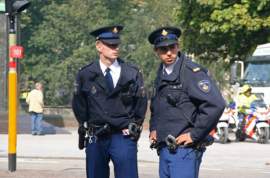
Illegal Search And Seizure: Must Know Facts

An illegal search and seizure is one that occurs without any proper authorization by the legal authorities or those that are conducted outside of the boundaries instituted by government laws or statutes. In the United States, the United States Constitution strictly provides laws prohibiting an illegal search and seizure to take place. This is found in the Fourth Amendment within the Bill of Rights and was implemented due to illegal search and seizure activities from British soldiers during the American Revolution.
Any particular violation or deviation from the explicit definitions and guidelines for what constitutes a legal search and seizure in accordance to the Constitution is considered to be an illegal search and seizure. Generally speaking, an arrest warrant must sanctioned by the appropriate courts to conduct a search and seizure, which also applies in the case of property as well. For example, if a police officer enters a home without a warrant for the purpose of a search and seizure, this is considered illegal.
Furthermore, an illegal search and seizure that renders evidence of guilt is not admissible in court, regardless how such evidence prove guilt. Any kind of evidence that is obtained through an illegal search and seizure is not recognized in the eyes of the law. The concept of an illegal search and seizure also is extended to searching a room or person that is not defined within the contents of warrant. An example would be if a person has a warrant to search a house, but also searches a garage and finds evidence. This is considered to be an illegal search and seizure for that area was not sanctioned under the warrant.



















